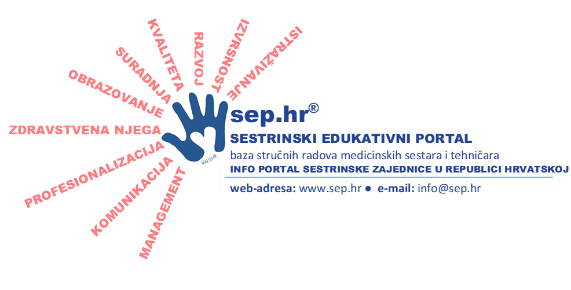Louise Rose
Canada
health-related quality of life; prolonged mechanical ventilation; weaning; memory
''5. Međunarodni kongres HDMSARIST-a'' i ''8. Međunarodni kongres WfCCN-a''
Šibenik, 12.-15. travnja 2012. godine
Background: Psychological distress of intensive care unit (ICU) survivors is a significant problem and is associated with delusional memories. Psychological morbidity may persist over time impacting health-related quality of life and ability to regain premorbid function including return to work.
Objective: To compare memories and recall of stressful experiences of ICU and a specialized weaning centre (SWC) as described by survivors of prolonged mechanical ventilation (≥ 21 days).
Methods: We recruited participants following hospitalization that included ICU admission and subsequent weaning in a SWC (Toronto, Canada). Using a prospective cross-sectional design, we determined memories and recall of stressful experiences of ICU and SWC stay using the ICU Memory Tool and ICU Experience Questionnaire administered via mail or in-person.
Results: Of the 45 eligible participants, 13 did not respond to recruitment strategies, 6 refused, 1 was incompetent, and 1 didn’t return questionnaires (24 participants). Mean time since SWC discharge was 1.9±1.2 years, age 67±16.8; 50% were female. 17% (ICU) and 8% (SWC) of participants had no recall of admission; 29% (ICU) and 75% (SWC) remembered all of their stay. Participants had similar mean numbers of factual (6.6 vs 6.6) and feeling (3.5 vs 3.1) memories of ICU and SWC. More delusional memories were reported for ICU than SWC (1.6 vs 0.6, P<0.001). Thirst (67%), no control (67%), noise (63%), and inability to sleep (58%) were events recalled most frequently from ICU: procedures (75%), night awakening (67%), inability to sleep (67%), and no control (63%) from SWC. Thirst and trouble speaking were rated most distressing. Since discharge, unexplained feelings of panic were experienced by 50% and intrusive memories by 46% of participants.
Conclusion: Despite moderate prevalence of psychological disturbance, few delusional memories were recalled. Difficulty sleeping, thirst, and lack of control were common experiences suggesting interventions focused in these areas are needed.
